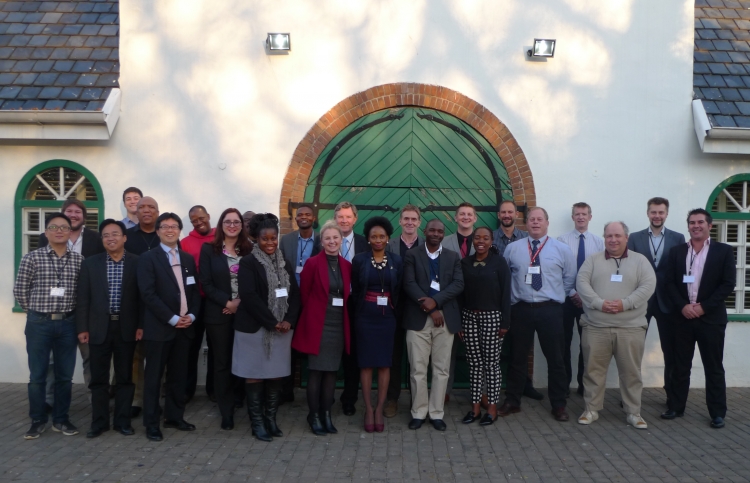In the framework of its support to nuclear knowledge management activities in Member States, the IAEA concluded a two-week mission to review master’s level programme in nuclear technology management in South Africa.
The peer review, held under the Agency’s International Nuclear Management Academy (INMA) initiative, was conducted at the North-West University in Potchefstroom and the University of the Witwatersrand in Johannesburg, from 12 to 23 June 2017.
Involving academia is a key component of managing knowledge for the successful development of a competent workforce for national nuclear energy programmes. The INMA is an IAEA-facilitated collaboration framework with leading nuclear engineering and science universities that aim to establish a high quality master’s programmes for current and future managers in the nuclear sector.
Both universities have been actively participating from the outset in this initiative and hosted INMA Assist Visits in 2015 to receive IAEA guidance to design their master’s programmes in Nuclear Technology Management (NTM).
“The INMA framework is crucial for us in establishing a new master’s programme in nuclear engineering with specialization in nuclear technology management to support international new build projects,” said Professor Louis Johannes Grobler, Dean of the Engineering Faculty of the North-West University.
The North-West University is the first university to start a nuclear engineering programme in Africa. Established in 2005, it has been largely contributing to the nuclear industry’s workforce development.
Professor James Larkin of the University of the Witwatersrand added: “The programme was designed with support from the industry, and is aimed at those who would be taking leading roles throughout the entire lifecycle of a nuclear power plant, from conception through to decommissioning.”
Following peer review missions at the University of Manchester, United Kingdom, in 2015, and the National Research Nuclear University MEPhI, Russian Federation, in 2016, this was the first undertaking in South Africa, visiting two universities simultaneously.
Both South African institutions have followed INMA’s core concept of collaboration among universities and stakeholders, mainly within the nuclear sector, in the development of a nuclear technology management programme. During the peer review, the IAEA team examined whether the design of their Master’s degree programmes meet the INMA NTM programme requirements. The assessment is the final step to get the university’s programme endorsed by INMA.
The peer review was based on INMA requirements, as specified in an upcoming IAEA Nuclear Energy Series publication International Nuclear Energy Management Academy: Master’s Programmes in Nuclear Technology Management, developed over the past four years with inputs from several participating university professors and industry stakeholders.
John de Grosbois, Head of the IAEA Nuclear Knowledge Management Section, emphasized that 2 universities are now implementing and about 20 universities planning to implement INMA NTM programmes over the next three years and many more peer review missions would be needed.
The expert mission to the two universities was supported through regional IAEA technical cooperation projects as well as extra-budgetary contributions from Japan. Shaukat Abdulrazak, Director of the Division for Africa of the IAEA Department of Technical Cooperation, noted that the INMA programmes in both universities would significantly contribute to human resource development in the region and enhance the managerial and leadership capacities of professionals who will work for the nuclear sector.
The final report of the peer review will be provided to the two South African universities in about three months with recommendations for possible improvements.
The programme was designed with support from the industry, and is aimed at those who would be taking leading roles throughout the entire lifecycle of a nuclear power plant, from conception through to decommissioning.





